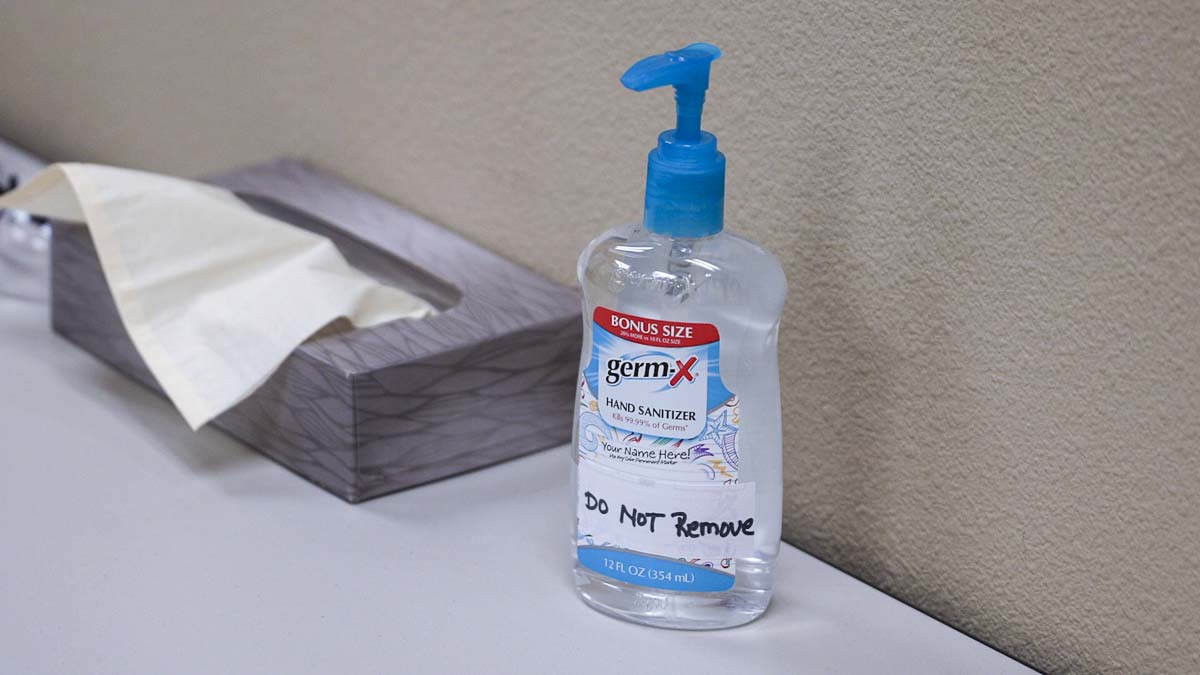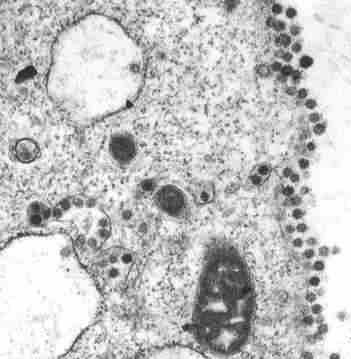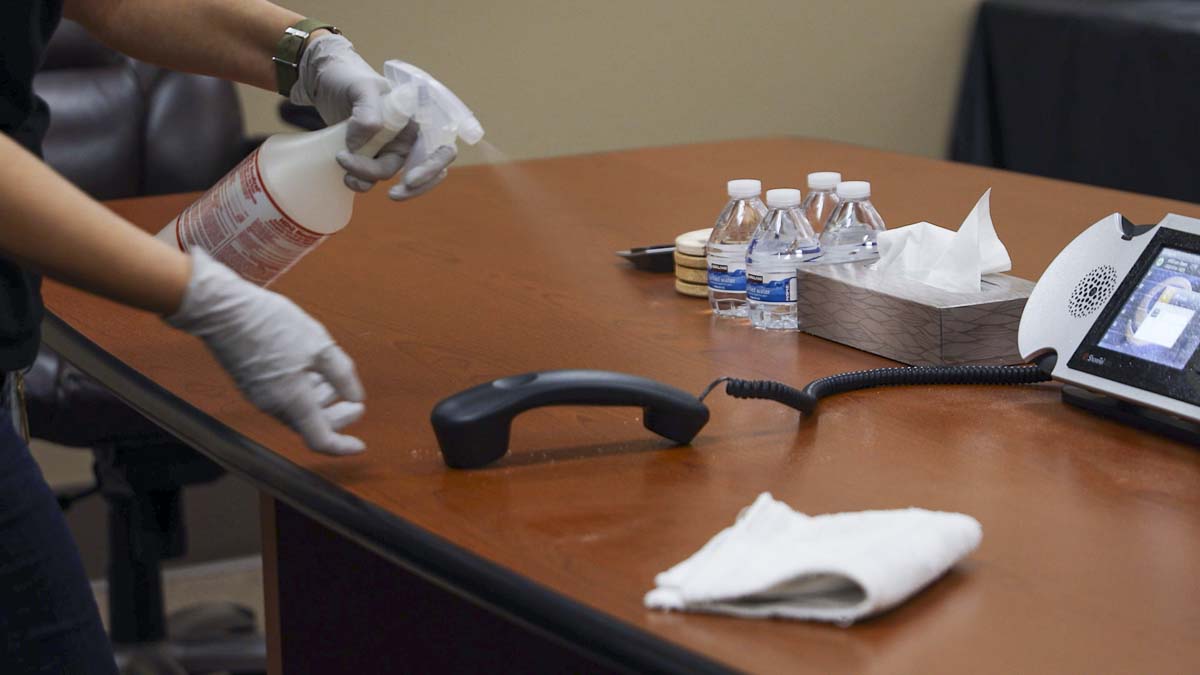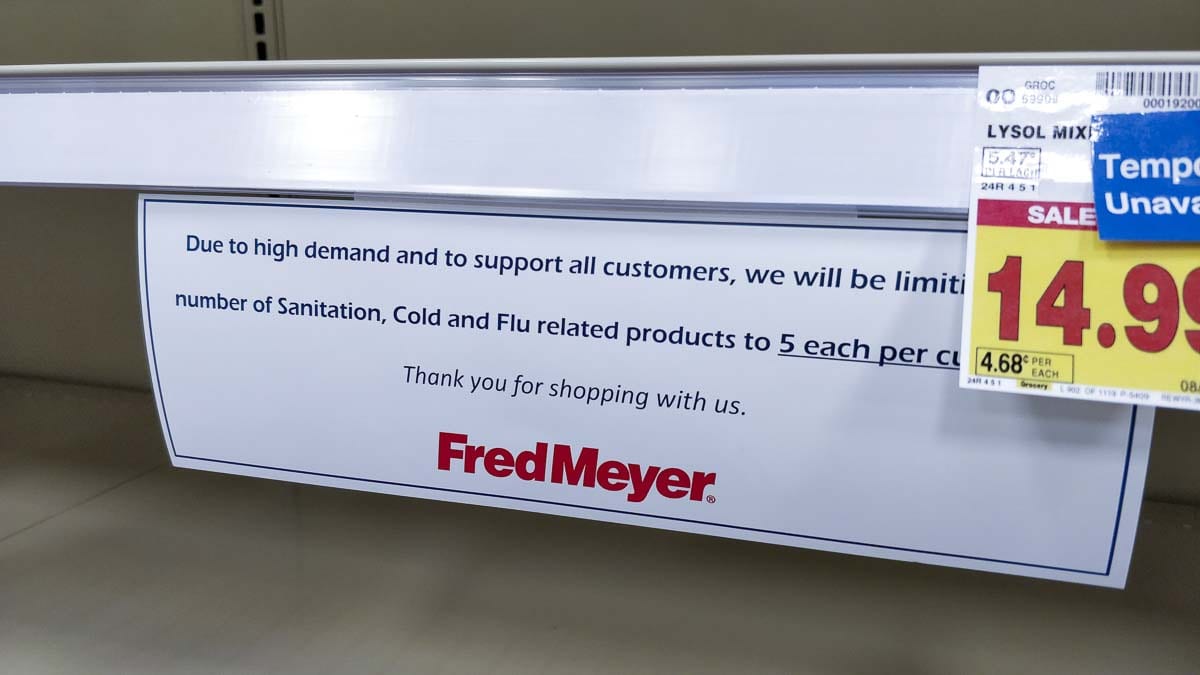Providers can also now send their own tests to a lab at the University of Washington
CLARK COUNTY — As of Monday morning, there is still only one confirmed case of COVID-19 in Clark County, but the number of people being tested jumped from just a handful, to 18.

That number does not include any tests being done by providers directly, since they can now send samples to a lab at the University of Washington, which received Federal Drug Administration approval late last week to begin testing for SARS-CoV-2, the virus which causes COVID-19.
Out of six tests completed by the state public health lab in Shoreline, Washington, five have come back negative. The lone person to test positive, a man in his 70s, remains in isolation at PeaceHealth Southwest Medical Center. Anyone who had direct contact with him is also being asked to stay home for at least 14 days from the date of contact.
The number of tests is likely to increase in the coming days. With more capacity coming online at the state lab, along with the University of Washington lab and several commercial ones, more people are likely to be tested. Previously, only people who had traveled outside the country recently, or had been hospitalized with symptoms similar to COVID-19, were being tested.
Statewide, 23 deaths have been blamed on the COVID-19 outbreak, including three new deaths reported Monday morning. King County Public Health officials said two women, one in her 90s and the other in her 70s, died Sunday. Another woman in her 80s died last Thursday, but her death wasn’t confirmed to be due to the virus until Monday. All three were residents of a Kirkland adult care home hit hard by the virus. All but four of the deaths in Washington state have been among the residents of Life Care Center.
The University of Washington and Seattle University both announced that, effective Monday, classes would not be meeting in person. In most cases, instructors will conduct education remotely, at least until the end of the quarter.

In Oregon, Governor Kate Brown issued an emergency declaration on Monday, freeing up $5 million in funding, though that is far shy of the $100 million approved by lawmakers in Washington state to tackle the outbreak.
There have been 14 confirmed cases in Oregon, so far, including a middle school student in Hillsboro. The Oregonian reports half of the students at that school stayed home on Monday.
Worldwide, there have been 113,605 confirmed cases at the time of this writing, and just over 4,000 fatalities blamed on the virus. 63,647 people were listed as recovered.
Italy is set to enact an unprecedented quarantine, covering the entire nation, after more than 460 deaths and 9,172 confirmed cases of COVID-19 there.
Ireland, meanwhile, canceled St. Patrick’s day parades in an unprecedented move intended to limit exposure to the virus. Boston followed suit, cancelling its popular parade “out of an abundance of caution.”
The markets have reacted to the spread of the virus with fear and trepidation.
Trading on both the Dow Jones Industrial and the S&P were temporarily suspended on Monday morning after falling over 7 percent. Some of the selloff was also triggered by a crash in oil prices, which fell over 20 percent, due to an ongoing price war between Russia and Saudi Arabia.
No plan to cancel local events
Despite the World Health Organization labeling the outbreak a pandemic, meaning a switch from containment efforts to mitigation, officials in Washington and Oregon said they have no current plans to order the cancellation of scheduled events.
But a number of event organizers have made the decision to cancel. Vancouver Brewfest canceled their Spring event this year “due to the unknowns of the coronavirus.”

Columbia Springs also canceled their annual Repair Clark County event, which was set to happen March 12, and will reschedule at a later time.
The NBA was set to meet with teams on Wednesday to discuss the idea of potentially holding games without any crowds.
The NBA and Major League Baseball have both said they will begin limiting locker room access to players and team personnel only, keeping media and non-essential personnel out in an effort to limit exposure to the virus. Media will also be asked to keep a 6-8 foot buffer from players during postgame interviews.
Businesses brush up on cleaning
For now, it seems, most businesses in Clark County haven’t felt a major impact from the outbreak. Restaurants still seem full, coffee shops are doing brisk business, and grocery stores continue to sell out of essential items faster than they can keep up. Numerous stores have limited the purchase of cleaning products, and things like toilet paper, in an effort to stop people from hoarding them, or purchasing them to sell at a profit.
But numerous people have mentioned online that the “gig economy,” meaning caterers, event coordinators, photographers, and more, have experienced a drop in business as people cancel events, such as weddings, concerts, and more.
Ilani Event Center said they are taking precautions, including stepping up routine cleanings, and focusing on high-touch surfaces to be disinfected multiple times per day.
“The health and safety of our valued employees and guests is our top priority,” said ilani President and General Manager Kara Fox-LaRose in a statement. “ilani has been monitoring the progression of COVID-19 carefully and is following guidelines for businesses set by the Centers for Disease Control and local health authorities in Washington and Oregon.”

Fox-LaRose said standard procedure in the casino is to replace playing cards and dice frequently. Some games use a deck of cards only once, but all games will have a fresh set at least every 24 hours.
The casino also has a state-of-the-art air handling system, which was put in place to prevent the smell from cigarettes permeating the facility. It cycles in 100 percent outside air throughout the day, so air is not recirculated through the building.
At Vancouver Mall, cleaning crews have been working to disinfect surfaces regularly, and the mall operator has been in contact with businesses to make sure they’re following CDC guidelines.
“We are actively monitoring the coronavirus outbreak reported in our area, and we are following guidelines prescribed by the CDC for prevention of transmission in public places,” said the mall’s general manager, Tracy Peters, with Centennial Recreation.
What you can do
By now you probably know that washing your hands regularly and thoroughly is your best defense in stopping the spread of any sickness. Try to avoid touching your face, especially if you’re in public, and cough into your elbow or shirt.
If you can manage to get your hands on some hand sanitizer (or some hand sanitizer on your hands), make sure the alcohol content is at least 62 percent. Anything less won’t reliably kill the SARS-CoV-2 virus responsible for COVID-19.
Homemade hand sanitizer is an option, but can be complicated to make properly. The CDC says you need to make sure the ratio is right in order to be effective. Mixing ⅔ of a cup of isopropyl alcohol (at least 91%) with ⅓ cup aloe vera gel should work. If you have some food grade essential oils around, you can add a drop or two to reduce the nasty alcohol smell.
The World Health Organization (WHO) has a more complicated recipe: 35 cups (8,333 ml) of 96% ethanol, 0.6 cups (145 ml) of 98% glycerol and 1.7 cups (417 ml) of 3% hydrogen peroxide, which is added to reduce bacterial contamination of the sanitizer.
Oh, and the WHO recommends you let that solution sit for at least 24 hours to reduce the risk of any contaminants.
While most doctors say there is no scientific evidence to back up claims that vitamin C can help to ward off COVID-19, or help you get over it if you do catch the virus, health experts say the healthier you are, the less likely you are to have complications should you become sick. So, cutting back on sweets, eating more whole foods, veggies, and fruits, definitely won’t hurt you.
And, having said all of this, try not to worry. Experts say fear can actually lower your body’s immune response, and make you more susceptible to illness. So, if you’re hiding out in your home trying to avoid becoming sick, maybe try to find some good comedies to watch. Laughter, after all, is the best medicine.
At least until they come up with a vaccine for COVID-19.
NOTE: Those who have questions about COVID-19 can call The Washington State Department of Health novel coronavirus call center 6 a.m. to 10 p.m. daily at 1-800-525-0127.
The Clark County Public Health novel coronavirus webpage has additional information about the virus, what’s happening in Clark County and how people can protect themselves from illness.




